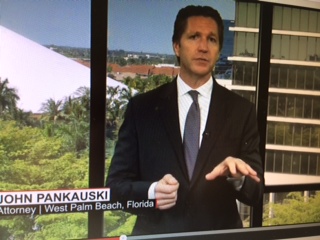Miami Inheritance Lawsuits + Interested Persons

Do you want to contest a Miami will or inheritance? Family members have questions. That’s understandable. But before you can launch a Will Contest or an Undue Influence case, do you have legal standing? Are you an interested person under Florida Probate or Trust Law? You need to have some legal connection to launch Miami Inheritance Lawsuits. We previously provided legal commentary about Inheritance Theft. Now, let’s discuss being an interested person.

Who is an “Interested Person”?
Florida Probate Code Section 731.201(23) provides the following definition: “Interested person” means any person who may reasonably be expected to be affected by the outcome of the particular proceeding involved. Note in Miami Inheritance Lawsuits, an “interested person” is NOT the same as a “person of interest”. The latter term is one which law enforcement uses. We are talking about inheritances and Florida Probates and Trusts. Not criminal law.
Miami probate lawyers know that an interested person interested, in a Florida probate case, has greater rights than others. For instance, an interested person has a right to request information regarding the inventory and accounting of the Miami estate. This is information that is kept confidential from the general public.
Only an interested person has standing (a legal right to be involved) in Miami probate court proceedings. An interested person can object to various pleadings and intervene in the Miami probate proceeding.
For example, interested persons can object to the qualifications of the Florida personal representative, the validity of the Florida will, or the venue/jurisdiction of the court handling the Florida probate.
It’s clear that the beneficiary of a Miami estate is considered an interested person, but is a prior beneficiary considered an interested person? If you were the beneficiary of a Florida will, but then later taken out of the will, you may want to read a November 16, 2011 Fourth DCA opinion, Agee v. Brown.
Interested Persons and Miami Inheritance Lawsuits
In this Florida probate case, two people filed a petition to revoke probate of a prior will. Jon was the the attorney who drafted this prior will, and Susan is Jon’s wife. Both Jon and Susan were named beneficiaries in the will that Jon had drafted.
The trial court found that the prior will, upon which the Agees based their standing, was void. However, the Agees appealed the trial court’s order dismissing their petition to revoke probate of the prior will based on a lack of standing.
As the basis for their standing, the Agees alleged that they were the beneficiaries under a line of testamentary instruments beginning in 1998 and culminating with a will executed in 2007.
Pursuant to the Florida Probate Code, “any interested person, including a beneficiary under a prior will, unless barred under s. 733.212 or s. 733.2123, may commence a proceeding to revoke the probate of a will before final discharge of the personal representative.”
Therefore, the Florida appeals court concluded that the Agees, as named beneficiaries under the 2007 will, were interested persons with standing to challenge the 2009 will.
If you are interested in contesting a Miami will, but are questioning whether or not you have standing to contest it, consider consulting with an experienced Florida probate lawyer. To interview a Miami or West Palm Beach will contest attorney, free of charge, call (561) 514-0900 ext.101.